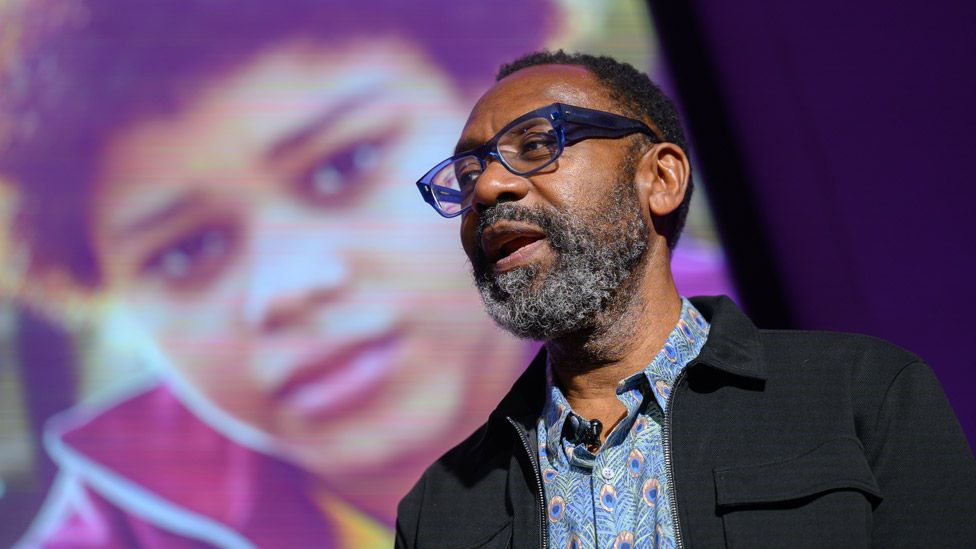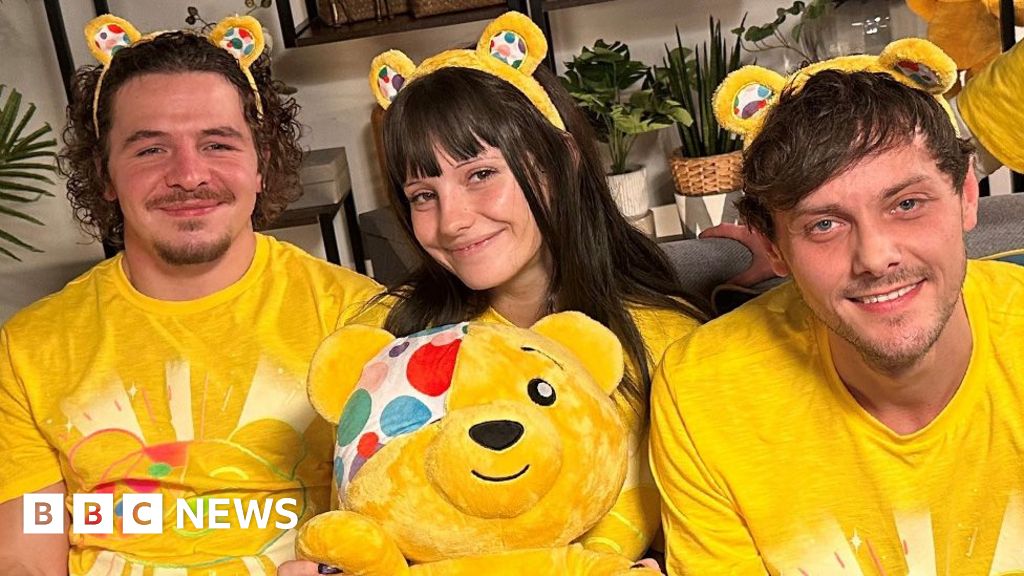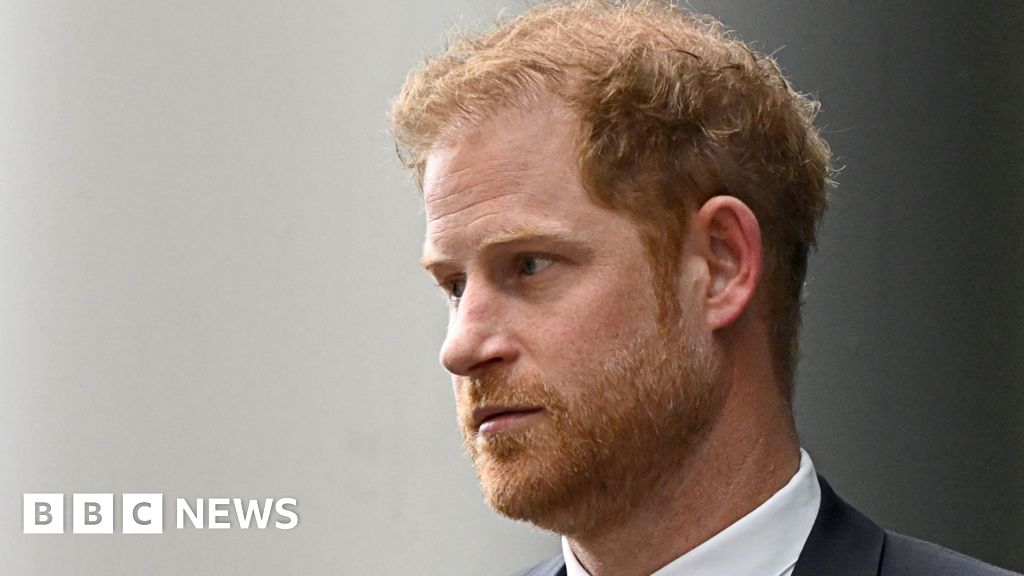ARTICLE AD BOX
By Ian Youngs
Entertainment & arts reporter

Sir Lenny Henry is executive producer of My Name Is Leon, which stars Cole Martin
When Sir Lenny Henry was narrating the audiobook version of Kit de Waal's novel My Name Is Leon, he had decided by lunchtime on the first day of recording that he wanted to make a TV version happen.
Six years later, the result is a 90-minute one-off drama that is broadcast on BBC Two on Friday. It's a heart-tugging story of a nine-year-old boy who's at the mercy of the foster care and adoption system along with his beloved baby brother.
"Often when you do an audiobook, it's like a deep dive because you're playing all the characters and you're doing the narration too," Sir Lenny says before a preview screening in Birmingham, where the story is set.
"I just found myself swept up in this kid's world. And I found myself really moved by his predicament, being a mixed race kid who's got a younger brother who's white with blue eyes, and the threat of being separated from his brother causing him to take certain actions."
Warning: Third party content may contain adverts
Before she became an author, de Waal had worked in family law, served on adoption panels and was a magistrate. The character of Leon was "a sort of amalgam of lots of boys that I worked with in the care system", she says.
She went to meet Sir Lenny that lunchtime on that first day of the audiobook recording, and they got on famously.
The pair both grew up in the West Midlands - Sir Lenny in Dudley and de Waal in Moseley. "She was a judge, I was on New Faces," the actor and comedian jokes, referring to the talent show that gave him his big break in 1975.
She gave her approval for his production company to make the TV adaptation, and he was determined that it should be shot in Birmingham.
In the past, shows set in the Midlands have often been filmed elsewhere, Sir Lenny says. But "this needed to happen and be filmed" in the city where it is set.
Malachi Kirby plays Tufty, who becomes a role model for Leon
Both the book and the film are set in the early 1980s, and the drama has an impressive cast including Monica Dolan, Olivia Williams, Christopher Eccleston, Malachi Kirby and Sir Lenny himself. At its heart is the young Cole Martin, playing Leon.
The title character befriends some men from the Caribbean community on an allotment and they take him under their wing. But he also learns harsh lessons about racial prejudice and police brutality.
Sir Lenny grew up 15 years before the fictional Leon but could relate to some parts of his story. He often faced daily racism at school, but says he wishes he had found similar strong male mentors.
"Yeah, I was moved by it," he says of Leon's story. "And I did find that there were things that chimed with me."
The young Lenny also went through family upheaval of a different kind when he discovered at 11 that his dad was not his birth father.
Sir Lenny Henry as Mr Johnson, one of the allotment holders
Leon's birth dad is in prison, but the boy eventually finds a father figure in Tufty, played by Kirby, who won a Bafta in 2021 for Sir Steve McQueen's Small Axe.
"What's great about Leon is that he does eventually find people who are his people," Sir Lenny continues.
"Being of Caribbean heritage, I grew up in a house with reggae music and soul music and stuff, whereas Leon has been brought up in a predominantly white house. So when he hears reggae music for the first time, it blows his mind.
"And I love that in this story, you see a boy becoming culturally aware, and you see him eventually standing up for himself."
Reviews of the drama so far have been mixed, with The Financial Times calling it "an uplifting tale of foster care", but with political and domestic strands that occasionally "feel awkwardly stitched together".
The New Statesman said it is full of "ostentatiously heart-warming" performances, and that it "cannot bear, somehow, to deal with the consequences of the issues it is determined to raise".
Left-right: Director Lynette Linton, Cole Martin, Sir Lenny Henry and Kit de Waal
De Waal says she didn't set out for the first book to have an explicit message. "But if people take anything away from it, it's that there are a lot of children in the care system that don't get adopted, and whenever possible, siblings should be kept together," she says.
"I worked on the adoption panel and, of necessity, siblings are split up all the time. It still happens today. It's a phenomenon of children going into the care system.
"It's not always the wrong thing. But sometimes it's the wrong thing. And it's certainly an important facet of adoption, that siblings that are split up lose each other and feel that loss, as Leon does."
The suggestion in the story is that Leon does not find an adoptive family because he is not white like his brother.
Does de Waal still think about Leon and what he would be doing now? "All the time," she replies. "He's a real character to me."
Olivia Williams (left) and Monica Dolan play sisters who take Leon in
In fact, she first wrote Leon as an adult character, then filled in his backstory. That backstory eventually took over and her novel became just about his childhood - making it a sort of prequel to the novel she had originally intended.
It worked, being nominated for the Desmond Elliott Prize, the Costa First Book Award and the British Books Awards after it was published in 2016.
She is now planning to publish the story of the adult Leon in a new book, set when he is 43, she reveals.
In the mean time, Sir Lenny hopes the TV drama will have the same effect on viewers as narrating the audiobook had on him. "I want it to be something that people will be moved by," he says.
"And if you can put yourself in Leon's shoes, you'll be thinking, that shouldn't have happened, that's still happening now, what can we do about it?"
My Name Is Leon is on BBC Two at 21:00 on Friday, and on BBC iPlayer.

 2 years ago
62
2 years ago
62








 English (US)
English (US)